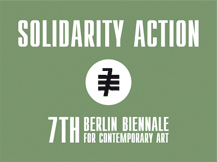In the past few years Rome has experienced a new vitality in the field of contemporary art, aided in part by the revamping of the two contemporary museums, the founding of non-profit private foundations, and an increase in new galleries that take a more open-ended, curatorial approach to commercial activities. Yet Rome is essentially a city that is struggling with its present-day identity. It suffers from a series of problematic issues that hinder the city’s potential as an international destination for contemporary art that can endure beyond its current moment in the sun. To a great extent, this is due to the fact that the city’s political system fails to recognize the value of contemporary culture (despite the fact that cultural tourism is a driving economic force for the city), and any intellectual and monetary investment is relentlessly dependent upon political agendas that shift radically as soon as there is a change in the political power from Left to Right or vice versa. The cultural transformations currently under way struggle with deep-rooted problems which continue to exist: insufficient public funding for both institutional and independent initiatives, inadequate education in the arts, a lack of exhibition spaces, and the growing disenfranchisement of local artists within a wider international community. It is essential – and urgent – that politicians address these issues through the initiation of a dialogue with cultural practitioners of the city to delineate a permanent, transparent, economic, mediatic investment in contemporary art, which must be autonomous of any governing political party.
ADRIENNE DRAKE
Director and curator of Giuliani Foundation for contemporary art, Rome. In 2006 she co-founded 1:1 projects, an independent platform for contemporary art.


